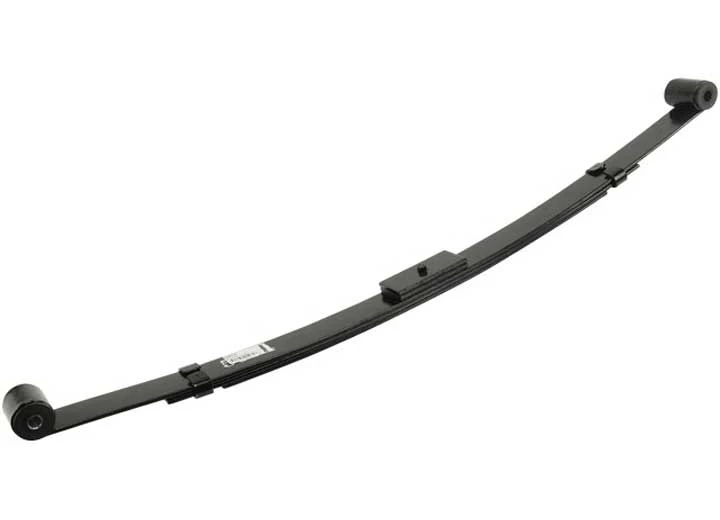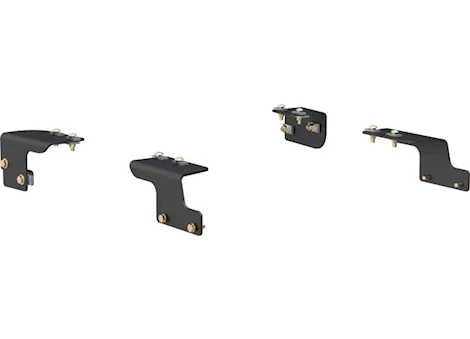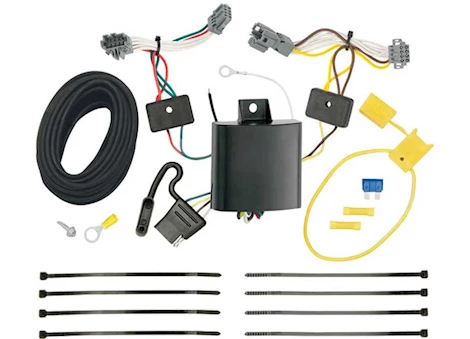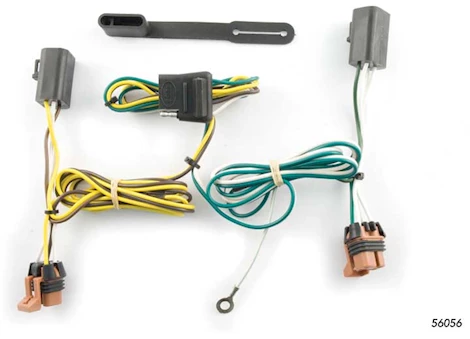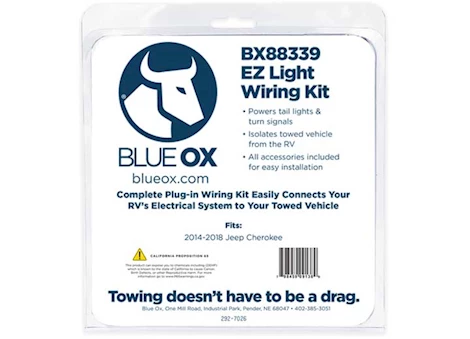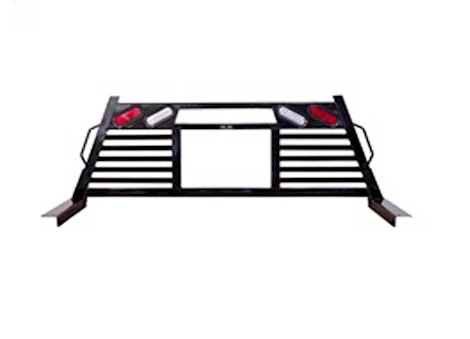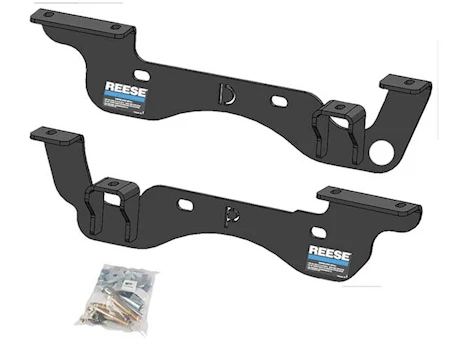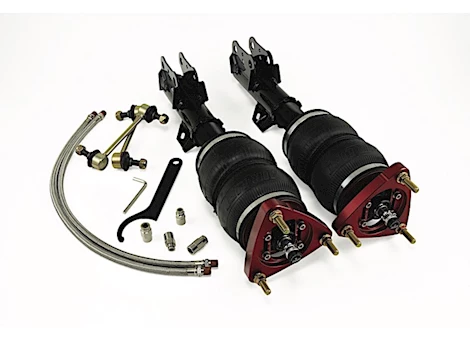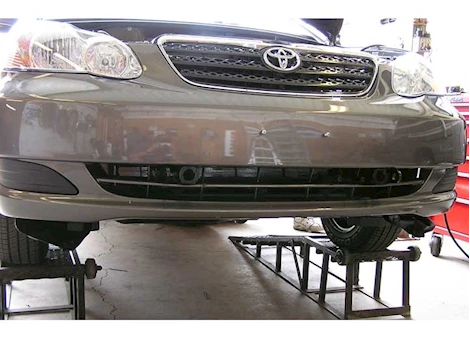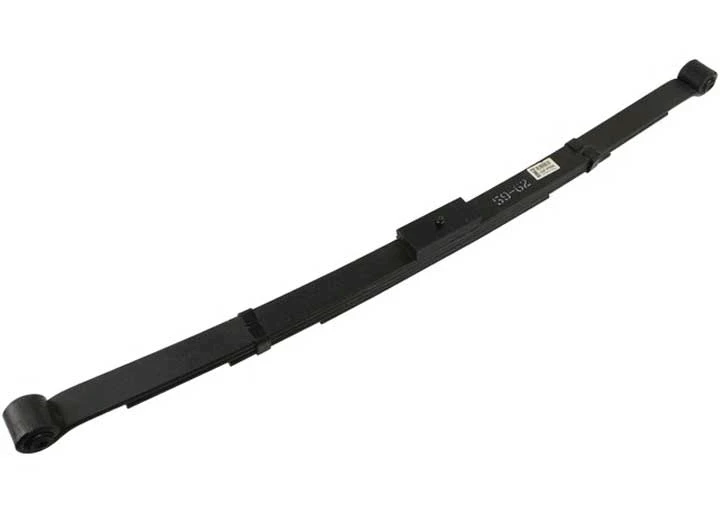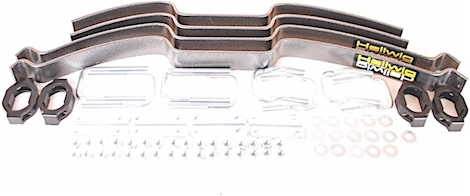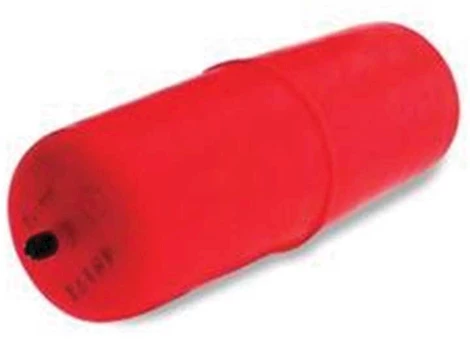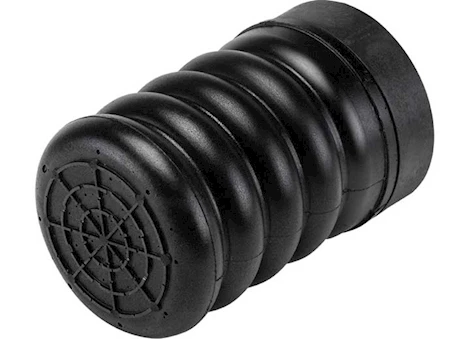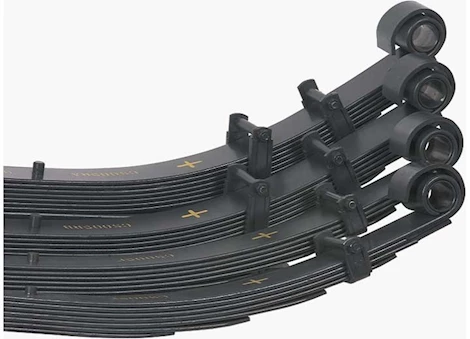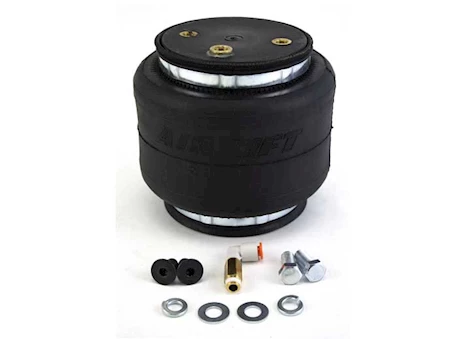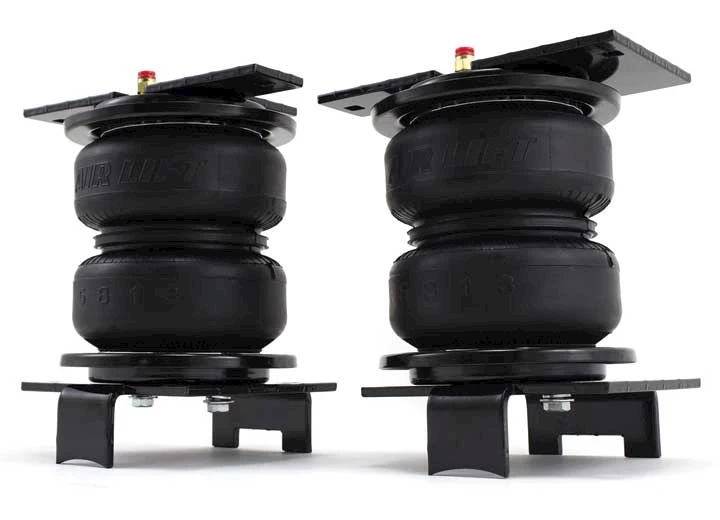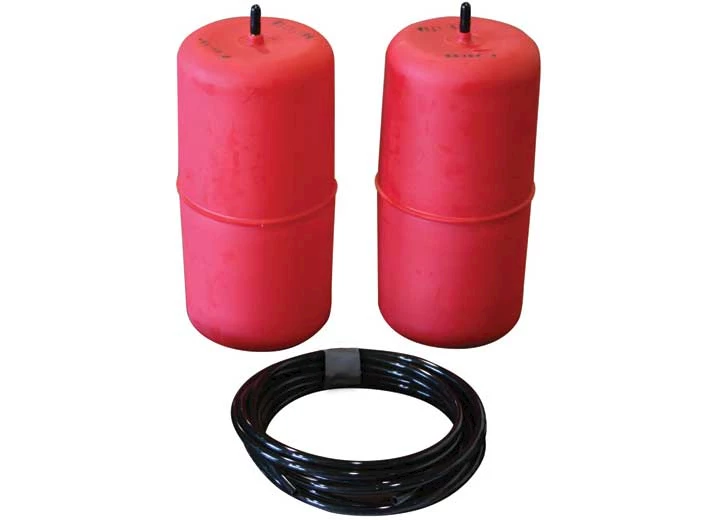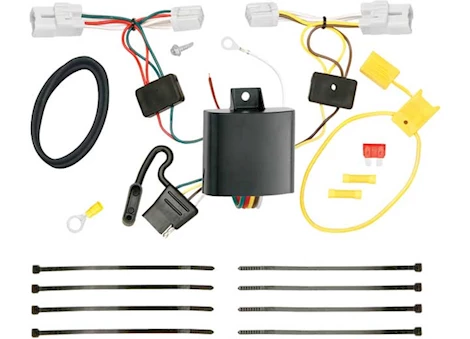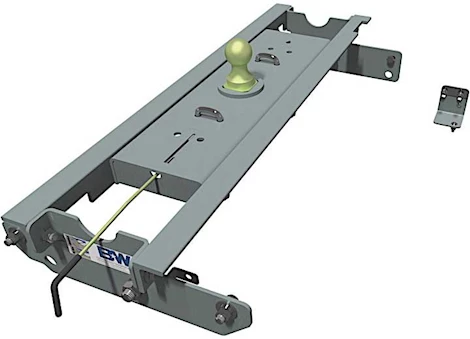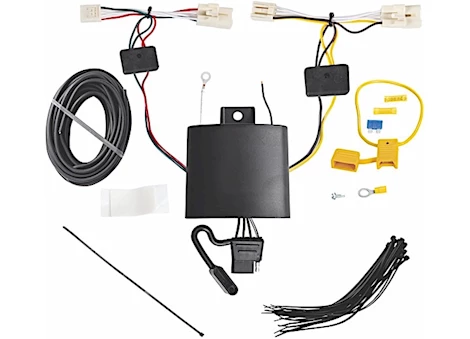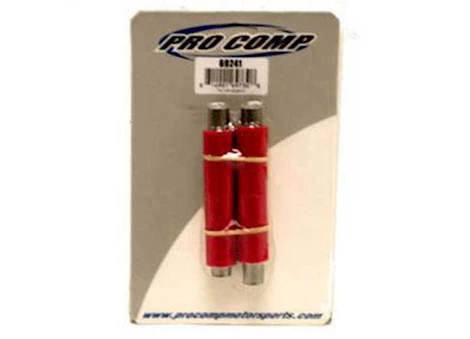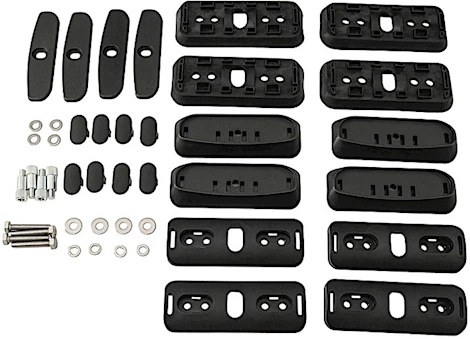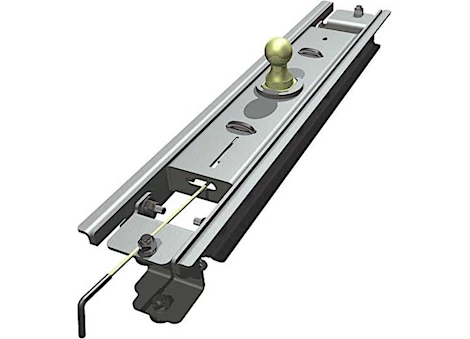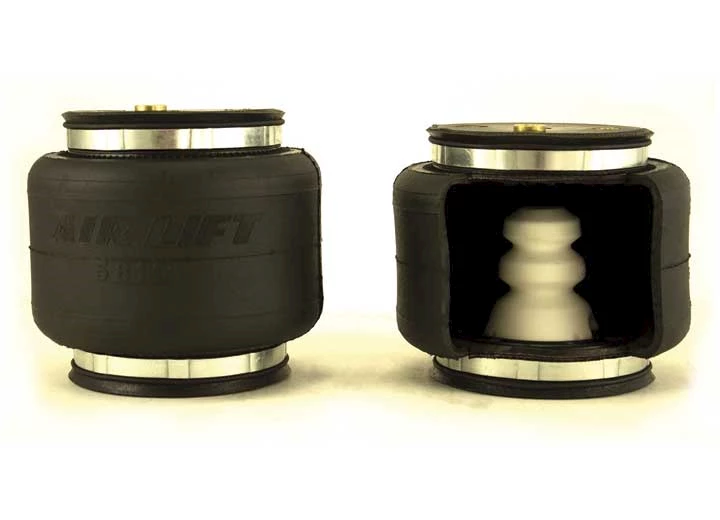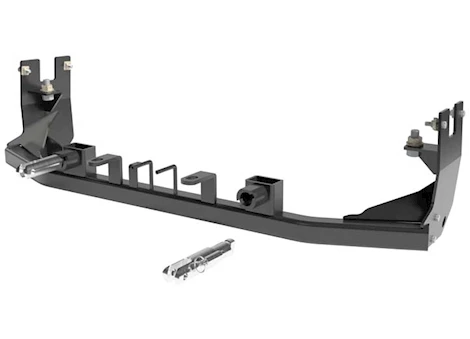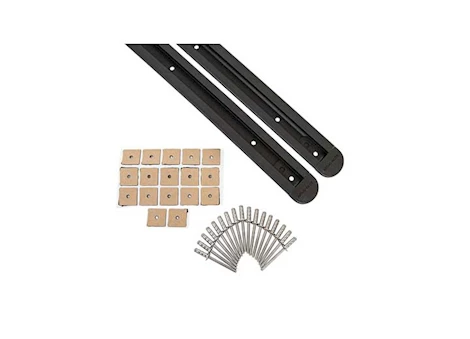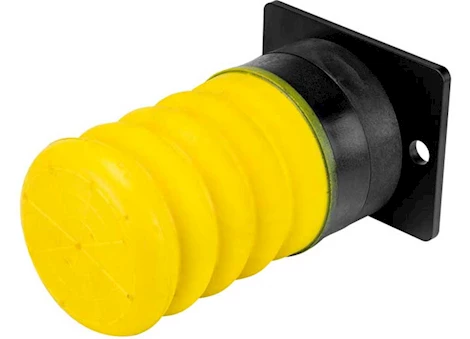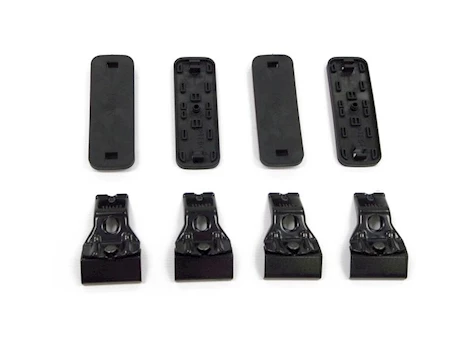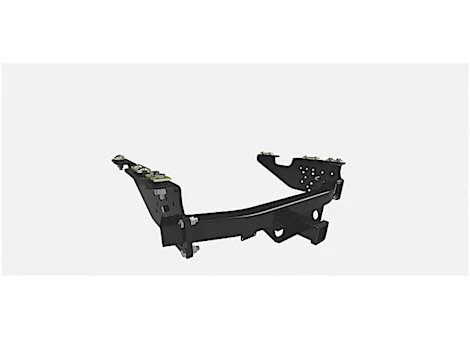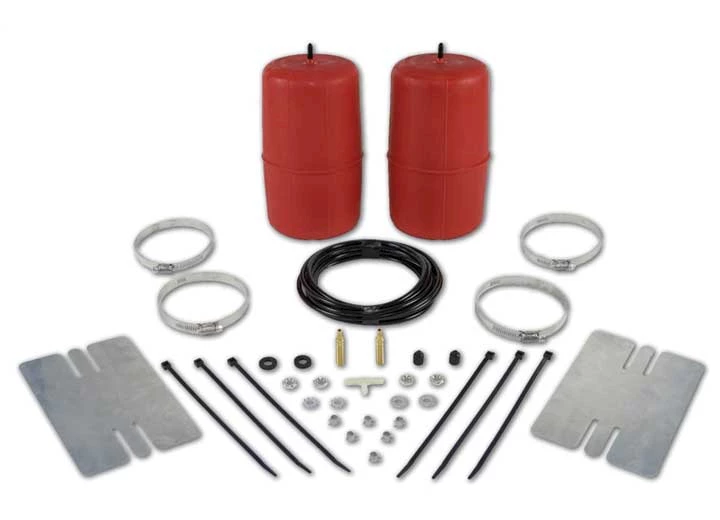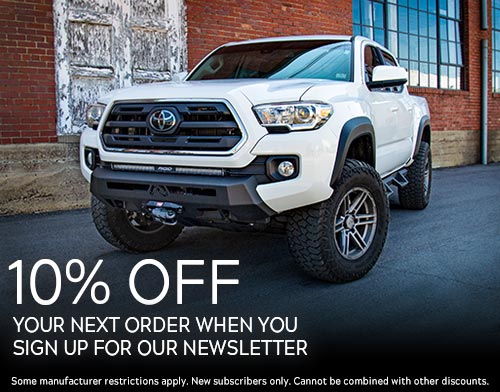Free Shipping Details
Free standard shipping on applicable orders over $200. Exclusions do apply. This offer does not apply to express or expedited shipping options. This offer is not valid on shipments to Alaska, Hawaii, or anywhere outside of the contiguous United States. This offer does not apply to oversize items shipping to rural areas. Oversize items require oversized truck freight shipping (LTL) due to size, weight, or shipping restrictions. Please allow for order processing time which varies by product followed by 3-5 business days for parcel ground deliveries to commercial addresses or 5-10 business days for home delivery to residential addresses. All returns are subject to the OmniGarage.com standard return policy. Check out our Shipping & Returns page for additional details on our policies.
-
Shop
-
Exterior
- Exterior
-
Bed Accessories
- Bed Accessories
- Anchors & Tie Downs
- Bed & Tailgate Caps
- Bed Extenders & Components
- Bed Rails
- Bed Side Rail Stake Pocket Covers
- Bed Steps
- Cargo Management
- Ramps
- Tailgate Assists
- Tailgate Handle Covers
- Tailgate Handle Locks
- Tailgate Miscellaneous Components
- Tailgate Nets
- Tailgate Seals
- Tailgate Security Locks
- Truck & Trailer Stakes & Components
- Truck Liftgates & Components
- Trunk & Tailgate Trims
- Vented Tailgates & Components
Jeep Accessories & Components- Jeep Accessories & Components
- Clinometer Gauges
- Exterior Jeep Miscellaneous Accessories
- Grab Bars & Handles
- Interior Jeep Miscellaneous Accessories
- Jeep Bump Stops
- Jeep Cages & Accessories
- Jeep Doors & Windows
- Jeep Foot Pegs & Hinge Steps
- Jeep Headliners
- Jeep Lightbrows
- Jeep Replacement Flooring
- Jeep Roll Bars & Accessories
- Jeep Seats & Components
- Jeep Trim Packages
- Jeep Trunks & Tailgates
- Jeep Underbody Hardware & Components
- Rocker Guards, Sliders, & Armor
- Suspension Bump Stop
- Tops, Covers & Accessories
Racks & Carriers- Racks & Carriers
- Bike Racks & Carriers
- Canoe & Kayak Racks
- Cargo Management
- Gun Racks
- Headache Racks, Cab Protectors, & Accessories
- Hitch Cargo Basket Bags & Side Rails
- Hitch Cargo Baskets & Components
- Molle Panels
- Overlanding Racks
- Racks & Carriers Miscellaneous Accessories
- Roof Racks & Components
- Rooftop Cargo Bags & Covers
- Rooftop Cargo Baskets & Platforms
- Rooftop Cargo Boxes
- Ski & Snowboard Racks | {{website}}
- Truck Bed Racks, Components, & Accessories
- Van Roof Racks & Components
Trims & Accents- Trims & Accents
- Antennas & Components
- Body Decal Kits
- Body Side Moldings
- Door Handle Covers
- Door Sill Plates
- Emblem Accents
- Fender Accent Vents
- Fender Trim
- Headlight & Tail Light Covers & Guards
- Jeep Trim Packages
- License Plates & Frames
- Light Bezels
- Pillar Posts
- Rocker Panels
- Side View Mirror Covers
- Spoilers
- Tailgate Handle Covers
- Third Brake Light Covers
- Trims & Accents Miscellaneous
- Vehicle Lettering
- Window Covers & Louvers
- Window Sill Trims
- Interior
- Performance
-
Drivetrain
- Drivetrain
-
Drivelines & Axles
- Drivelines & Axles
- Axle Housing & Gaskets
- Axle Shaft Components
- Axle Shafts
- Axle Trusses & Components
- CV Joints
- CV Shafts & Joints Miscellaneous Components
- Differential Bearings
- Differential Carriers
- Differential Covers
- Differential Gaskets
- Differential Lockers
- Differential Miscellaneous Components
- Differential Pinion Miscellaneous Components
- Differential Spindles
- Differentials
- Drive Shaft Miscellaneous Components
- Drive Shafts
- Driveline & Axle Miscellaneous Components
- Locking Hubs & Components
- Ring & Pinions
- Shim Spacers
- Transfer Cases & Componentes
- Universal Joint Miscellaneous Components
- Universal Joints
-
Suspension & Steering
- Suspension & Steering
-
Steering Upgrades
- Steering Upgrades
- Power Steering Fluids
- Power Steering Hoses
- Power Steering Kits
- Power Steering Miscellaneous Components
- Power Steering Pumps
- Steering Arms & Components
- Steering Columns & Components
- Steering Drag Links
- Steering Gears & Components
- Steering Knuckles
- Steering Miscellaneous Components
- Steering Pitman Arms
- Steering Shafts & Components
- Steering Stabilizers & Components
- Steering Tie Rod Miscellaneous Components
- Steering Tie Rods
- Steering Track Bars, Brackets, & Bushings
Suspension Components- Suspension Components
- Air Suspension Kit
- Air Suspension Performance Components
- Alignment Kits & Components
- Radius Arms & Components
- Suspension Ball Joints & Components
- Suspension Block Kits
- Suspension Bump Stop
- Suspension Control Arms, Ball Joints, Brackets, Components, & Hardware
- Suspension Idlers & Components
- Suspension Knuckles
- Suspension Limit Straps
- Suspension Miscellaneous Components
- Suspension Subframe & Components
- Suspension Torsion Bar & Components
- Suspension Traction Bars, Brackets, & Bushings
-
Towing
- Towing
-
Hitches & Towing
- Hitches & Towing
- Brake Controllers & Wiring
- Cargo Management
- Drop Hitches, Ball Mounts & Components
- Fifth Wheel Hitches & Components
- Flat Towing
- Gooseneck Hitches & Components
- Hitch Balls & Covers
- Locks, Clips & Pins
- Pintle Hooks & Mounting Plates
- Receiver Hitches & Accessories
- Safety Chains, Cables, & Links
- Shackles, Hooks & D-Rings
- Tow Straps, Kinetic Ropes, & Tree Savers
- Towing Electrical & Wiring
- Weight Distribution Hitches & Sway Control
- Weight Distribution Safety & Technology
Racks & Carriers- Racks & Carriers
- Bike Racks & Carriers
- Canoe & Kayak Racks
- Cargo Management
- Gun Racks
- Headache Racks, Cab Protectors, & Accessories
- Hitch Cargo Basket Bags & Side Rails
- Hitch Cargo Baskets & Components
- Molle Panels
- Overlanding Racks
- Racks & Carriers Miscellaneous Accessories
- Roof Racks & Components
- Rooftop Cargo Bags & Covers
- Rooftop Cargo Baskets & Platforms
- Rooftop Cargo Boxes
- Ski & Snowboard Racks | {{website}}
- Truck Bed Racks, Components, & Accessories
- Van Roof Racks & Components
-
Wheel
- Wheel
- Exhaust
- Audio
-
Lighting
- Lighting
-
Emergency & Safety Lighting
- Emergency & Safety Lighting
- Emergency & Safety Beacons & Warning Lights
- Emergency & Safety Fullsize Lightbars
- Emergency & Safety Hideaway Lighting
- Emergency & Safety Light Mounting Brackets
- Emergency & Safety Lighting Components
- Emergency & Safety Lighting Replacement Lens
- Emergency & Safety Mini Lightbars
- Emergency & Safety Strobe Lighting
- Emergency & Safety Surface Mounted Lighting
-
Collision
- Collision
-
Replacement Fenders & Components
- Replacement Fenders & Components
- Replacement Fender Aprons
- Replacement Fender Braces
- Replacement Fender Extension Panels
- Replacement Fender Flares
- Replacement Fender Inserts
- Replacement Fender Liners
- Replacement Fender Patch Panels
- Replacement Fender Splash Shields
- Replacement Fenders
- Replacement Wheel Arch Moldings
- Replacement Wheel Arches
- Replacement Wheel Housings
-
Shop Supplies & Equipment
- Shop Supplies & Equipment
-
Outdoor & Powersports
- Outdoor & Powersports
-
Overlanding
- Overlanding
-
Exterior
- Brands
- Sale
Your Garage
Your garage is empty


